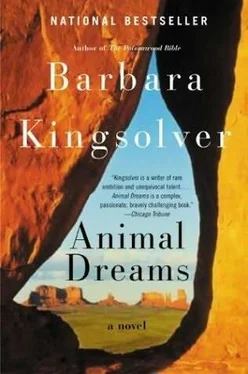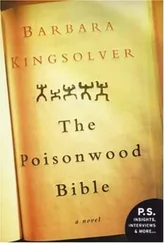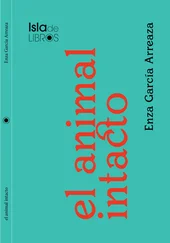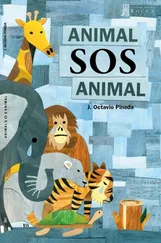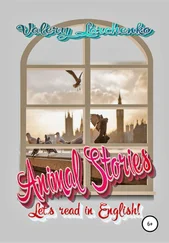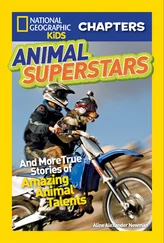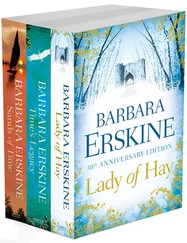None of this happened. Grace looked like a language I didn’t speak. And Emelina wasn’t coming. I hefted up my suitcases and started to walk.
Oh Lord, the terror of beginnings. I dreaded having to see all the people who were going to say, “How long are you home for, honey?” Possibly they would know I’d come for the school year. We would all carry on as if this were the issue: the job. Not Doc Homer, who’d lately begun addressing his patients by the names of dead people. Since I really did need to come, I’d gotten myself hired to replace the high-school biology teacher who’d recently married and defected without warning. I had practically no teaching qualifications, I should add, and things like that get around. It’s tough to break yourself as news to a town that already knows you. Grace formed its opinions of Hallie and me before we had permanent teeth. People here would remember our unreasonable height in seventh grade, and our unfortunate given names; our father actually named my sister Halimeda, which means “thinking of the sea,” however reasonable a thing that might be to do in a desert. And my own name, Cosima, means something to the effect of “order in the cosmos” which is truly droll, given my employment history. I must have sensed the lack of cosmic order in my future, early on. Maneuvering for approval, I’d shortened it to Codi in the third grade, when Buffalo Bill and the Pony Express held favor with my would-be crowd.
Hallie was a more natural abbreviation, from the time she could walk people never called her anything but that, although Halimeda actually had some truth in it; she made you look for things beyond what you could see. I could imagine Doc Homer dreaming up these names, confident we’d both take noble courses. Suddenly I felt dragged down by emotions as I walked along, as if I’d swum out into a calm sea and encountered a bad undertow. I carried my suitcases toward the edge of town.
An old, densely planted pecan orchard stretched out from the edge of the courthouse square, and somewhere behind it lay Emelina’s place. The reflected sky ran like a vein of silver in the irrigation ditch, but when I left the street and stepped under the canopy of trees it was dark. If you’ve never walked through an old orchard, you have to imagine this: it presents you with an optical illusion. You move through what looks like a hodgepodge thicket of trees, but then at intervals you find yourself at the center of long, maddeningly straight rows of trees, standing like soldiers at attention. There’s a graveyard in northern France where all the dead boys from D-Day are buried. The white crosses reach from one horizon to the other. I remember looking it over and thinking it was a forest of graves. But the rows were like this, dizzying, diagonal, perfectly straight, so after all it wasn’t a forest but an orchard of graves. Nothing to do with nature, unless you count human nature.
A bird scream rang out from the leaves and echoed up my spine with a shiver that ended in my scalp. I believe it was the first sound I’d heard since the gear grinding of the bus. I stopped to listen. Quiet. Then another bird answered from behind me, close by. It sounded like the throaty, exotic laughter of a foreigner-like a jungle bird. The peacocks. These orchards were full of peacocks, living more or less wild and at the mercy of coyotes but miraculously surviving in droves. There was a local legend, supposedly true, about how they got here a hundred years ago: the nine blue-eyed Gracela sisters came over from Spain to marry nine lucky miners in the gold camp, sight unseen. Back then these hills were run through with gold veins and drew a crowd of men who had too much money and too little love. The sisters were just children, and only agreed to come if they could bring their birds with them in the hold of the ship. Their legacy in Gracela Canyon was a population of blue-eyed, dark-haired descendants and a thousand wild peacocks. Their father stayed behind and got rich by proxy, for he’d literally sold his girls for a gold mine.
The branches were ringing with bird calls now. And I could hear kids laughing. A whole chorus of them screamed at once. Toward the far end of the orchard I could make out children’s silhouettes jumping and dancing under the trees. It was dark in there for mid-day but I definitely saw kids: little girls in billowy dresses and boys in white shirts. I couldn’t make out their game. The tallest boy had a stick and they were chasing something and flailing at it. I walked down the row toward them, towing my bigger suitcase like an anchor. I was traveling light in theory, but I’d dragged with me into Grace a substantial reference library. It had taken me a lot of nervous weeks to narrow down what books to bring. At the very last minute I’d thrown out Gray’s Anatomy because Doc Homer would have it.
I stepped over the irrigation trenches, mindful of my Italian leather uppers. I’m picky about shoes, and there was no replacing these now. I smiled, thinking of the awful silver loafers in the Hollywood Shop. I envisioned my predecessor at the high school dressed like that, standing in front of a classroom of fifteen-year-olds, twisting her white chiffon scarf as she explained cell division. What would these kids make of me? My shoes were pointed and my, as the magazines say, personal style leaned toward apologetic punk. I’d never had a teacher who looked like me; probably there was a reason.
I stopped to massage my aching shoulder. There was something up there at the edge of the orchard all right, a bunch of kids, and something in the trees over their heads. I thought about skirting around the little gang to avoid spoiling their fun, or maybe, actually, because I was afraid. I tried to move quietly. Whatever it was they were chasing, they were going to get it.
I could see plainly then that it was a heavy-bodied peacock shuffling from side to side on a low branch. Apparently the creature was too dull-witted or terrorized to escape, or possibly already injured. The children pursued it ferociously, jumping up and pulling at its long tail feathers, ready to tear it to pieces. The boy with the stick hit hard against the belly and they all shrieked. He hit it again. I couldn’t see the stick but I heard the sickening whack when it made contact.
I looked away. I’d arrived in Grace, arrived at that moment in my life, without knowing how to make the kind of choice that was called for here. I’m not the moral guardian in my family. Nobody, not my father, no one had jumped in to help when I was a child getting whacked by life, and on the meanest level of instinct I felt I had no favors to return. Especially to a bird. It was Hallie’s end of my conscience that kept pinching me as I walked. I dropped my bags and walked a little faster, trying to think of some commanding thing to say. If they didn’t stop soon the thing would be maimed or dead.
“Stop it!” I yelled. My heart was thumping. “You’re killing that bird!”
The boy froze like a rabbit in headlights. The other kids, down on their knees, stared too. I’d arrested them in the act of grabbing fistfuls of bright paper and candy that sparkled on the ground. The mute peacock swung over their heads on a wire. Its fractured body hung in clay shards the size of plate, held together by a crepe-paper skin.
When I was ten I’d demolished a piñata exactly like this one, with blue paper wings and a long glossy tail of real feathers. At a birthday party. At some time or other every child in Grace had done the same.
After an impossible few seconds they went back to scrambling for their prize. Two older girls helped the smallest kids scoop candy into piles in their laps. A cluster of boys elbowed and slapped each other behind the girls’ backs.
I felt disoriented and disgraced, a trespasser on family rites. I walked away from the little group of kids back toward the place in the center of the orchard where I must have left my suitcases. I wondered in what dim part of Grace I’d left my childhood.
Читать дальше
